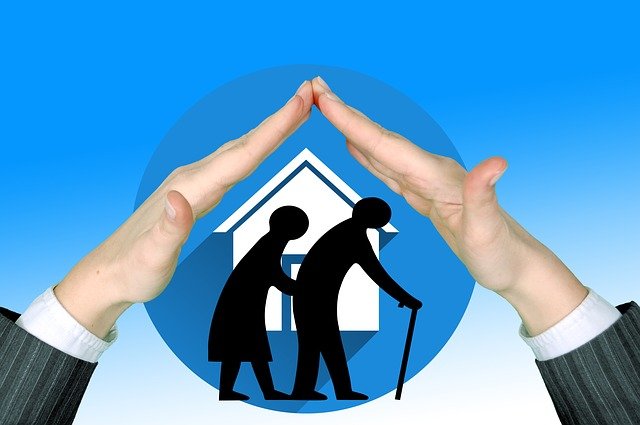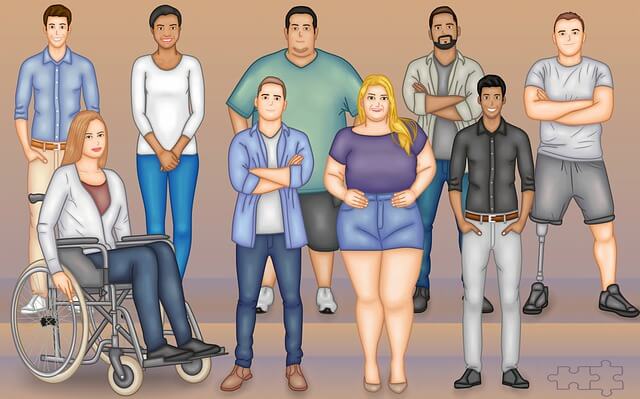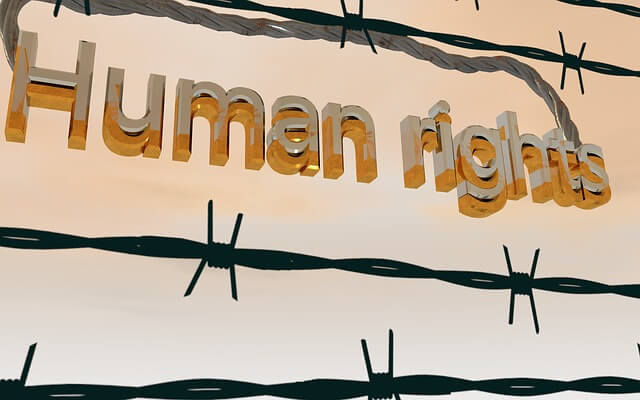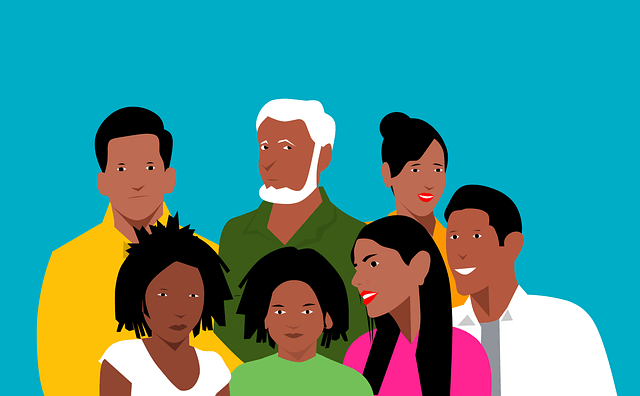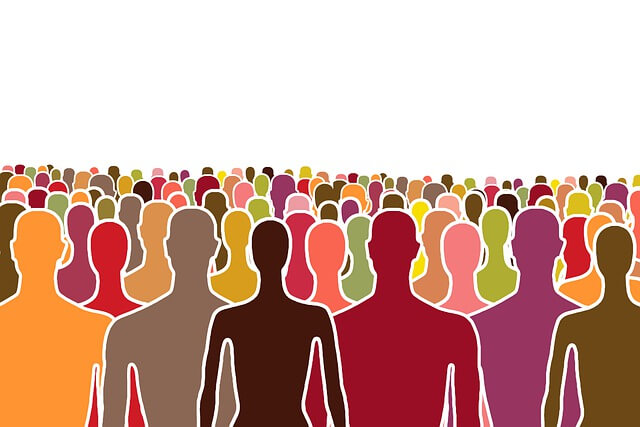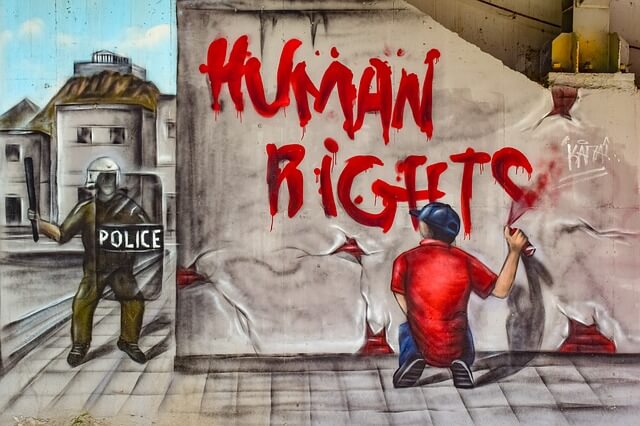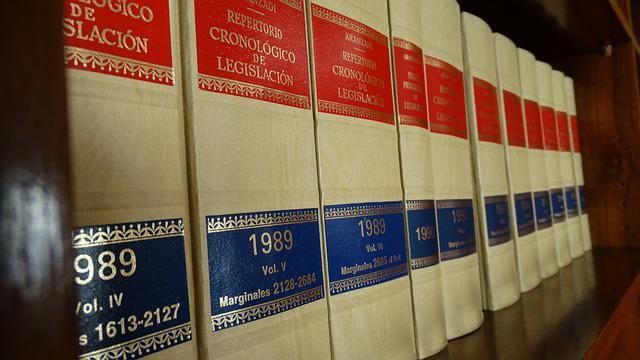society
المقررات الدراسية موسومة بـ "society"
Principles of Health & Social Care Ethics
In this course Learn about the 4 principles of health and care. This course is ideal for intermediate learners.
Introduction
Ethics are a system of moral principles, or standards of behaviour, and are part of the way that someone makes a decision and how they live their lives. The subject of ethics looks at what is good for society and individuals.The 4 principles of health and social care ethics provide guidelines that help professionals to make decisions, when faced with complicated situations involving patients. They play a key role in ensuring an individual’s safety and care.
Ethics tends to cover the following life problems or dilemmas:
· How we should live a good life
· What our rights and responsibilities are
· What language is used for right and wrong
· Moral decisions - what is good and bad?
You will learn
The four principles of ethics in health and social care practice· Autonomy
· Beneficence
· Non-maleficence
· Justice
Equality and Diversity
Learn about equality and diversity in health and care. This course is ideal for intermediate learners.
Introduction
The health and social care sector recognises the need to treat everyone equally, and therefore equality, diversity and rights affect all those working in the sector as well as those who use health and social care services.It is important that these terms, equality, diversity and rights, are at the very core of everything that is done.
Equality, diversity and rights ensure that everyone is treated the same, regardless of the following:· Gender
· Sexuality
· Ethnicity
· Language
· Race
· Age
· Sexual orientation
· Background
· Beliefs
· Disability
· Education
· Skin colour
Equality, diversity and rights will have different effects on your career and an impact on the people you care for as they mean different things. For example:
Equality
Equality looks at how everyone should be treated in the same way. This means that every individual should have the same rights, status or opportunities.
Laws
Laws have been put in place to ensure that this happens and organisations have to write and adhere to equality policies (guidelines that tell an organisation what to do in a particular situation) which outlines what they must do and how they should do this, so that everyone is treated equally.
You will learn
- Introduction to Equality, Diversity and Rights in Health & Social Care
- Groups, Stereotyping and Labelling
- Promoting Equality & Diversity rights in a Health & Social care setting
- Protected Characteristics
- Equality - Rights in the Social Care setting
Codes of Practice
Learn about codes of pratice in health and care. This course is ideal for intermediate learners.
Introduction
Codes of practice, or codes of conduct, set the standard of behaviour that is expected of health and social care workers. They also guide professionals on their roles, rights and responsibilities.
Furthermore, they outline the behaviours and attitudes that are expected from the people who use the services and helps them to understand what support to expect too.
Most health and social care staff will have codes of conduct to follow with standards that are specific to that area of social care or healthcare. However, they do tend to overlap as all health and social care professional are required the delivery of quality care to people.
You will learn
- Codes of conduct and the guidelines they provide to support those in the health and social care secto
- Codes of conduct for
healthcare and social care workers
- How the code supports
workers and others
- 7 principles of the code
Human Rights
Introduction
Human rights are rights we have simply because we exist as human beings - they are not granted by any state. These universal rights are inherent to us all, regardless of nationality, sex, national or ethnic origin, color, religion, language, or any other status. This means that we are all equally entitled to our human rights. This principle, as first emphasized in the UDHR - Universal Declaration of Human Rights (UDHR) - is repeated in many international human rights conventions, declarations, and resolutions.Human rights are the basic rights we all have simply because we are human. A right is a legal entitlement
to something. There are fundamental rights and freedoms that everyone in the UK is entitled to.
Identify what you think counts as a “right” from the list below:
· Money
· Education
· Employment
· Privacy
· Car
· Marriage
· Phone
· Vote
· House
· Life
· Freedom
Inequality
Learn about inequalities in society including poverty, health and age. This course is ideal for intermediate learners.
Introduction
Inequality can be found in most societies as it is the result of resources being shared out unequally among people. Resources are usually given out according to social characteristics such as age, gender and disability.These characteristics can come from:
· Ascribed characteristics which are assigned at birth, or an automatic development at some point and includes factors such as age, gender or place of birth
· Achieved characteristics which are earned or chosen and involves factors such as level of education and marital status.
Resources that are distributed can include the following:
· Income or wealth, where there is economic inequality
· Social power, meaning the right to be an authority figure or to have a say
· Natural goods, such as parks or green areas
· Public goods, which can include: education, housing, transport, credit (such as cards, store cards, loans or mortgages) and banking
You will learn
- What is inequality in society
- Inequality in economic status
- How economic inequality is measured
- The meaning of poverty
- inequality in health
- Inequality in age
How Public Services Meet the Needs of Society
Learn more about the role of the public sector in areas such as education, criminal justice and leisure. This course is ideal for intermediate learners.
Introduction
Education is another part of Public Services. Every citizen in the UK has the right to education. Education allows us to learn new skills and values through learning subjects such as; Maths, English, Science, Art, Geography and History.
By getting an education it allows us to get qualifications and meet the needs for specific jobs within our society.
You will learn
- Education
- Health
- Criminal justice
- Environment services
- Leisure
- Social welfare
How Public Services are Affected by Changes in Society
Learn more about how public services are affected by changes in society. This course is ideal for intermediate learners.
Introduction
In the UK there are currently more people here than there has ever been, and we are all living for longer; this will affect our Public Services.What do you think the effects of this will be on the following Public Services?
• Border Force
• Police
• Paramedics
• Local councils
Social changes also affect the levels of use our Public Services have.
Examples of social change are:
• The growth of an ageing population
• Patterns of health/illness
• Immigration
These changes are clearly going to affect the Public Services. It may mean that these Public Services are relied upon more than ever, in order to keep up with the demands of our changing society.
You will learn
- Population growth
- Changes in use and levels
- Strains on Public Services
- Attitudes towards Public Services
Human Rights and Public Services
Learn about the Human Rights Act 1998 and other legislation to protect your rights as a citizen. This course is ideal for intermediate learners.
Introduction
As normal citizens in the UK we are expected to follow the laws of the country and be good citizens. Members of the public services also have to obey the laws that everyone else does, but they have additional laws to follow because they have additional powers that normal citizens do not have.Every statutory public service in the UK has its own legislation, to describe not only how the service should function but also its limitations and restrictions. Members of the public services should be role models and examples to others. They need to have authority and that can only be achieved if they are good citizens and obey the law themselves.
Human rights are things to which individuals in society are entitled. These rights are laid down in law, so if these rights are violated, then a UK citizen can go to court to seek justice. The principal law in the UK is the Human Rights Act 1998.
Human rights can be split into two sections:
1. Protection
2. Rights or entitlements
You will learn
- Human Rights Act 1998
- Other legislation (law) that protect your rights as a UK citizen
Aspects of Citizenship
Introduction
The world is divided into countries. These are political regions, which means people have decided on the boundaries and borders. Each country has a government which is responsible for managing resources, such as taxes and how to spend them, and the organisation of their society. They are also responsible for the protection of their citizens.The UK contains four countries:
· Scotland. Capital: Edinburgh. Scotland has a devolved government that can only make laws for Scotland and can decide how education and healthcare is provided. They also send 59 representatives to the English Parliament.
· Northern Ireland. Capital: Belfast. Northern Ireland has a devolved government that can only make laws for Northern Ireland that includes policing, education, health, and housing. They send an additional 18 representatives to the House of Commons each election.
· Wales: Capital. Cardiff. Wales has a devolved government that can only make laws for Wales on topics that include tourism, education, health, and housing. They send 40 MPs to the House of Commons.
· England. Capital: London. London is the capital city of the UK. This is where the nation’s government sits at the Palace of Westminster. There are two houses which debate and create bills.
You will learn
•Why citizenship is important in society•The rights of citizens in society
• Citizenship and equality
Public Services are in Place
Learn about why public services are important and what are the needs of a diverse society. This course is ideal for intermediate learners.
Introduction
The public services play a vital role in our lives. We need the public services to meet the needs of a diverse society.The concept of diversity encompasses acceptance and respect. It means understanding that each individual is unique, and recognizing our individual differences.
You will learn
- Why public services are important
- What makes people diverse
- A range of reasons why public services are in place
The Impact of Change in Society
Learn more about the different changes in society and how these have impacted public services. This course is ideal for intermediate learners.
Introduction
Over time society has changed dramatically. Think back 50, 60, 70 or 100 years – how do you think society would have looked?Here are some points of changes :
Medicine has developed over time. Illnesses that had no cure are now curable and medical facilities have improved.
Technology now enables you to contact people all around the world.
Society has become more diverse due to migration and better transport.
Demographics relate to the structure of populations. This means that when you think about the demographic of somewhere, you are looking at how their society is made up in terms of the people who live in it. There have been many changes in society and there are positive and negative aspects of demographic change.
Here are some examples of demographic changes:
• Growth of an ageing population
• Patterns of health and illness
• Immigration
• Social inequality
You will learn
- Different changes that have happened in society
- How these changes in society have impacted on the Public Services
- Changes in demographics
- Ageing population
- Immigration changes
Safety Responsibilities of Employers
Learn more about the different types of responsibilities employers have to maintain the safety of their employees and the public. This course is ideal for intermediate learners.
Introdcution
Employers have responsibilities to the people who work for them. If they do not take these responsibilities seriously, then it can have a bad effect on the services or on an individual.What’s the difference between an employee and an employer?
· An employee is a person employed for wages or salary
· An employer is the person or company who employs others and pays them
Here are a few examples of the responsibilities that employers have:· To provide safe working environments for all employees
· To provide adequate training
· To provide any necessary safety equipment or work wear
· To enable whistleblowing
You will learn
- The different types of responsibilities that employers in the public service have
- Why it is important that the employers in the public have responsibilities and how they maintain these
- Safe working environment
- Whistleblowing
Rights within the Criminal Justice System
Learn more about rights within the criminal justice system. This course is ideal for intermediate learners.
Introduction
As we look at how Public Services support the rights and responsibilities of citizens, it is important to understand a citizen’s rights in relation to the Public Services.We will now look at the rights of citizens within the criminal justice system.
Every citizen has basic rights, for example if you are arrested you are entitled to legal representation.
Here is some of the information relating to your rights when you’re arrested:· Getting free legal advice
· Telling someone where you are
· Having medical help if you’re feeling ill
· Being given a notice that tells you about your rights
· Access to an interpreter, if needed
· For your possessions to be kept locked away safely
You will learn
- Legal representation
- Legal aid
- A fair trial
The Responsibility of Public Service Employees
Learn more about the different types of responsibilities Public Service employees have and the importance of these. This course is ideal for intermediate learners.
Introduction
· Obeying the law
· Maintaining professional standards
· Following codes of practice
· Promoting diversity
· Following anti-discrimination policies
· Following procedures for complaints
As a member of the Public Services, it is important that you not only uphold the law but you also obey it.
Just because you work in Public Services does not mean you can do whatever you want. However, there might be times where Public Services employees may have to break the law.
You will learn
- Identify different Public Service responsibilities
- The importance of the responsibilities public service employees have
Public Services and Legislation
Learn about the legislation surrounding the public sector and equality duty. This course is ideal for intermediate learners.
Introduction
All public services have to comply with the Equality Act 2010 and this states that they must also comply with the public sector equality duty. The equality duty ensures that public services think about how they deliver their services and how this will impact on those who are disadvantaged or within the protected characteristics group.
As with discrimination exceptions, there are situations where public services do not need to comply with these duties. These include the following areas:
Judicial Events – The courts do not need to think about the equality duty when making decisions or when and how they conduct the proceedings.
Age in education or children’s home – Schools do not need to think about how to develop good relationships between pupils of different ages. However they need to consider this between pupils of different religions.
Immigration - When involved in immigration proceedings, public services would not need to think about the advance equality of opportunity (treating one group more favourably than another because of their disadvantage) to those in the following protected groups:
- · Age
- · Religion
- · Race
You will learn
- Public sector equality duty exceptions
- Types of legislation under the equality duty
- Policy and decision making processes
Public Services and Equality
Learn about equality and how it affects people and public services. This course is ideal for intermediate learners.
Introduction
Equality is based on the understanding that everyone should be treated equally, so that they have the same opportunities as each other regardless of, for example, their age, sex, sexuality, disability or race.People treated unequally due to these differences are being discriminated against, which is illegal.
We are protected from discrimination through the implementation of the Equality Act 2010.
Equality Act 2010.
below some of the nine pieces of legislation were merged to create the Equality Act 2010.
EQUAL PAY ACT 1970: Stops any favourable or unfavourable treatment of pay, or any other conditions, within employment between men and women.
RACE RELATIONS ACT 1976: The protection against discrimination relating to a male or female’s race, colour, ethnic or national background in education and employment and during the process of buying goods or services.
EMPLOYMENT EQUALITY (RELIGION or BELIEF) REGULATIONS 2003: Used to protect people
from being discriminated against due to their religion or belief, or non-religion/belief
within employment.
EMPLOYMENT EQUALITY (SEXUAL ORIENTATION) REGULATIONS 2003: The protection against discrimination due to expected or known sexual orientation within employment, which also includes discrimination against religion, belief and age.
EMPLOYMENT EQUALITY (AGE) REGULATIONS 2006: The protection against discrimination on the grounds of age within employment. Employees may work after the national retirement age.
You will learn
- Equality
- What is equality
- How equality affects us and the public services
Promoting Good Citizenship
Learn more about the promotion of good citizenship in the public services sector. This course is ideal for intermediate learners.
Introduction
The Public Services view good citizenship as an important part of maintaining a good society.Therefore, Public Services want to maintain good citizenship by:
· Having a desire to improve society
· Protecting individuals
· Protecting the vulnerable
· Contributing to society by getting involved
You will learn
- How public services promote good citizenship
- How when working in public services you will promote good citizenship
Individual Rights Dignity & NHS
Learn more about dignity and rights when using public services. This course is ideal for intermediate learners.
Introduction
In life we need to use the Public Services many times for different reasons. It is important that when we need these services that they are high quality services.For example, if you were to call the Paramedics in an emergency and they did not turn up until the next day this could be very dangerous and would be an example of poor quality service.
Another example could be if you called the fire service and they did not turn up with the correct equipment with them, then lives could be in danger.
You will learn
- Public services users rights
- Your right to consent to treatment when using the NHS
- Why it is important to have your dignity maintained when using public services
Individual Rights-Public Service
Learn more about the right of public service users and why they are important. This course is ideal for intermediate learners.
Introduction
In life we need to use the Public Services many times for different reasons. It is important that when we need these services that they are of a high quality.For example, if you were to call the police in an emergency and they did not turn up until the next day, this could be dangerous and would be an example of poor quality service.
Sometimes, the quality of a services isn’t as good as it should be. There have been several real-life incidents where a victim of a crime has called the police, and there has been a serious delay in officers attending the crime scene. This is typically seen as unfair treatment and it usually results in compensation.
You will learn
- Public services users rights
- The rights of Public Service users and why they are important
- The importance of high quality public services and examples of this
- Why it is important to be treated without discrimination when using public services
Growth of Information and Communications Technology
Learn more about growing information communication technology and the impact it has in society. This course is ideal for intermediate learners.
Introduction
Having the Internet has changed the way we do things. The Internet can now be accessed almost anywhere on PCs, laptops, phones and tablets.
The growth of the Internet and social media now means we can access information straight away, almost anywhere in the world.
This means we no longer have to wait to watch the news. It also means that we are constantly kept up to date
You will learn
- The internet
- Accessing information
- Social media
- How do public services use social media?
- What are the benefits?


